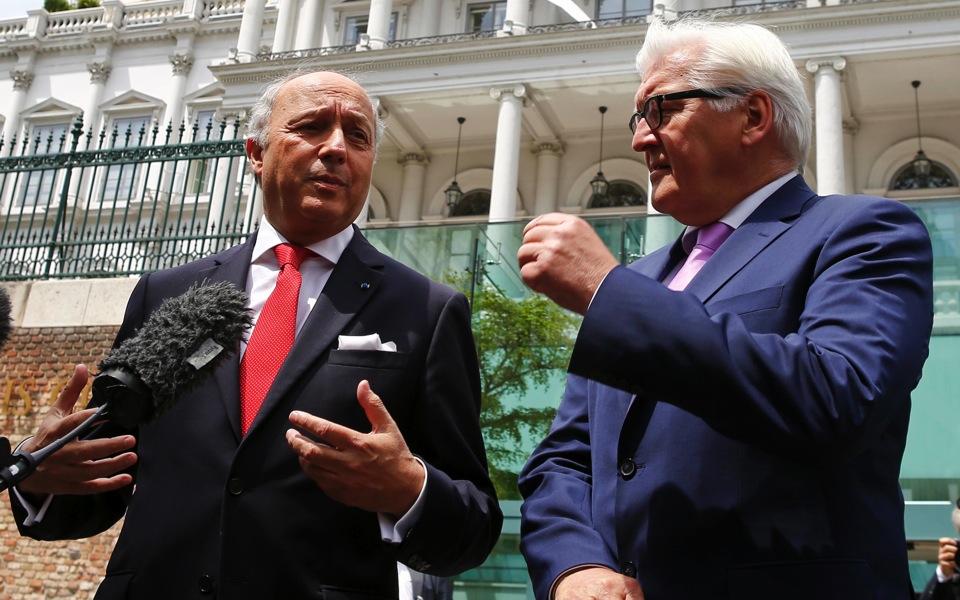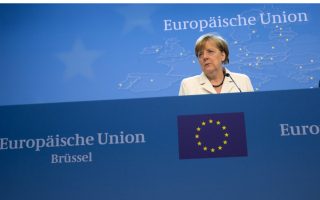Greek deal ‘not possible without Franco-German alliance’

The alliance between France and Germany had been "crucial" in reaching a historic bailout deal with Greece after marathon EU talks, the foreign ministers of the two countries said Monday.
Greek leftist Prime Minister Alexis Tsipras agreed following grueling overnight negotiations to tough reforms in return for a three-year bailout worth up to 86 billion euros ($96 billion), the country's third rescue program in five years.
"The situation we now have, after a night of long and difficult negotiations, would not have been possible without the Franco-German cooperation," said Germany's Frank-Walter Steinmeier.
"Rarely before has it been so apparent that Germany and France are capable of overcoming obstacles through cooperation and preparing compromises, which all the others are willing to accept, even when completely different interests and opinions are at stake in Europe."
Steinmeier made the remarks in Vienna during a press joint statement with his French counterpart, Laurent Fabius, on the sidelines of ongoing negotiations with Iran over its nuclear program.
Fabius also hailed the "Franco-German friendship" as having been essential in sealing a deal between Greece and European leaders.
"I wanted to underline the extent to which the Franco-German relations… were crucial in reaching a compromise and uniting all Europeans behind the accord of Brussels. I think that's also one of the main lessons to be drawn from what happened," he said.
Tsipras, German Chancellor Angela Merkel, French President Francois Hollande and EU president Donald Tusk hammered out the proposal on the sidelines of an emergency summit of the 19 countries that use the euro.
The agreement came after a bitter six-month struggle following Tsipras's election in January that put Greece's membership of the eurozone in the balance.
It also tested the relationship between Germany – which refused to budge on a strict reform regime for Greece – and France, which insisted everything had to be done to keep Greece in the eurozone.
Greek banks have been closed for nearly two weeks and there have been fears they could run dry due to a lack of extra funding by the European Central Bank, meaning Athens would have had to print its own currency and effectively leave the single currency.
[AFP]





